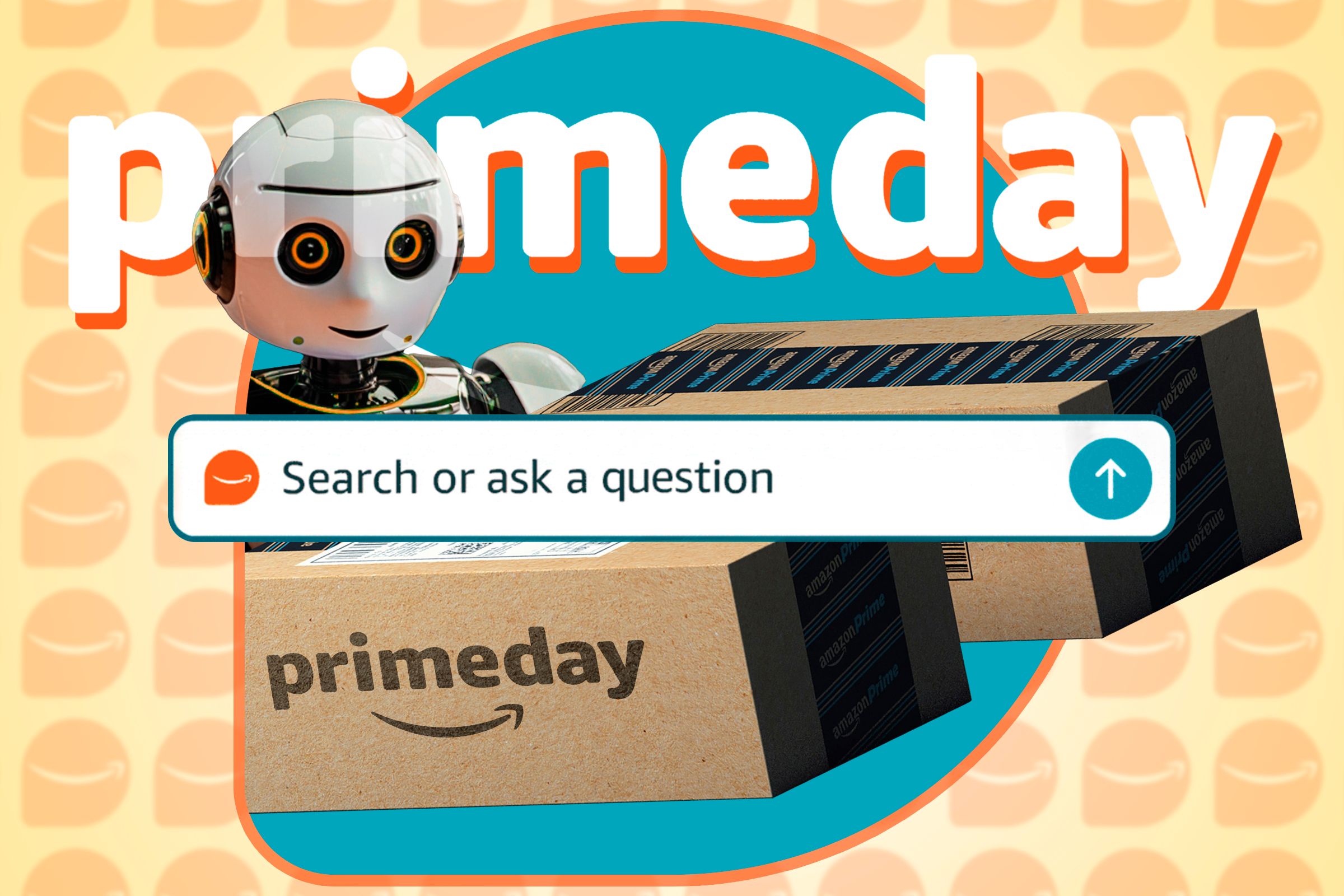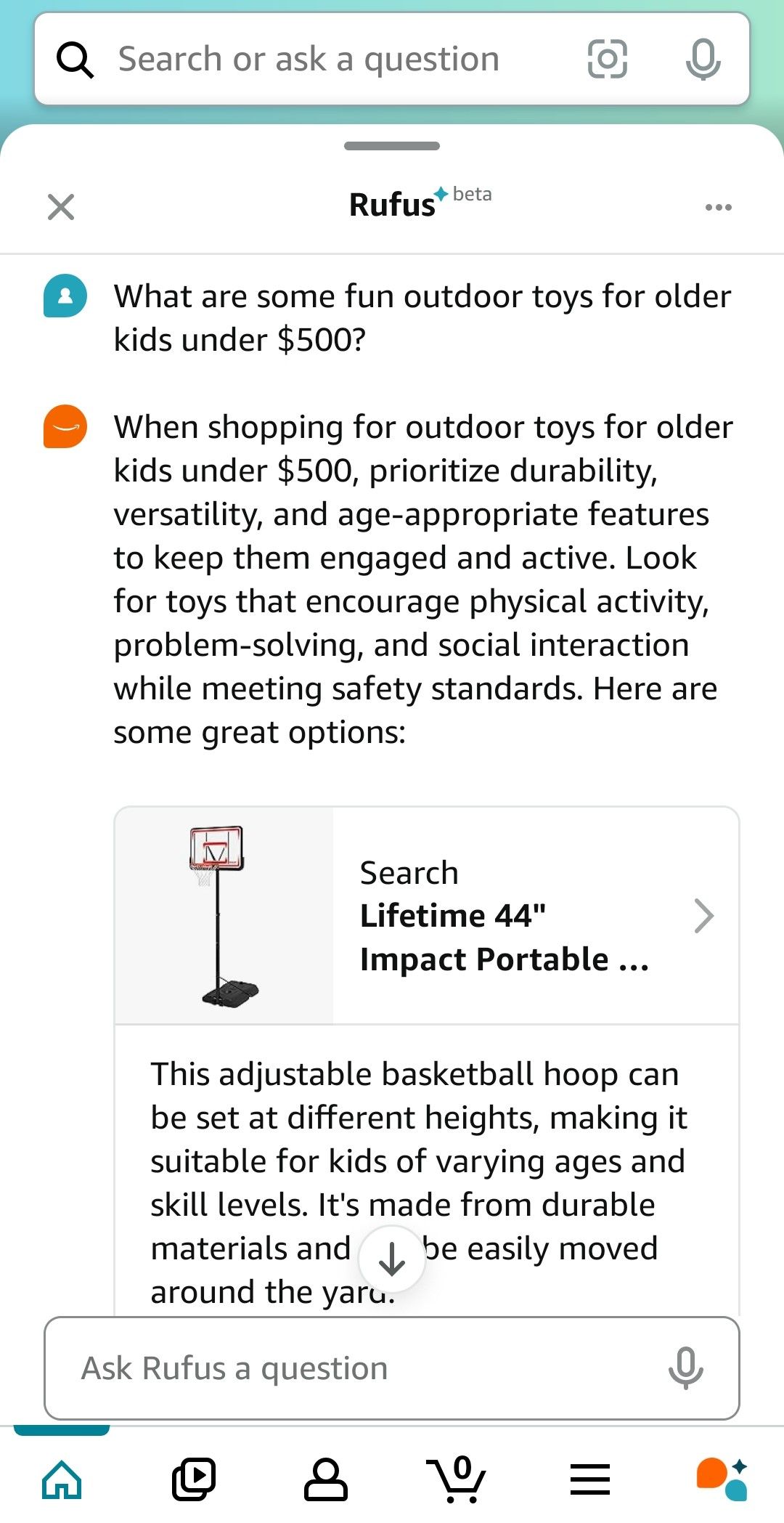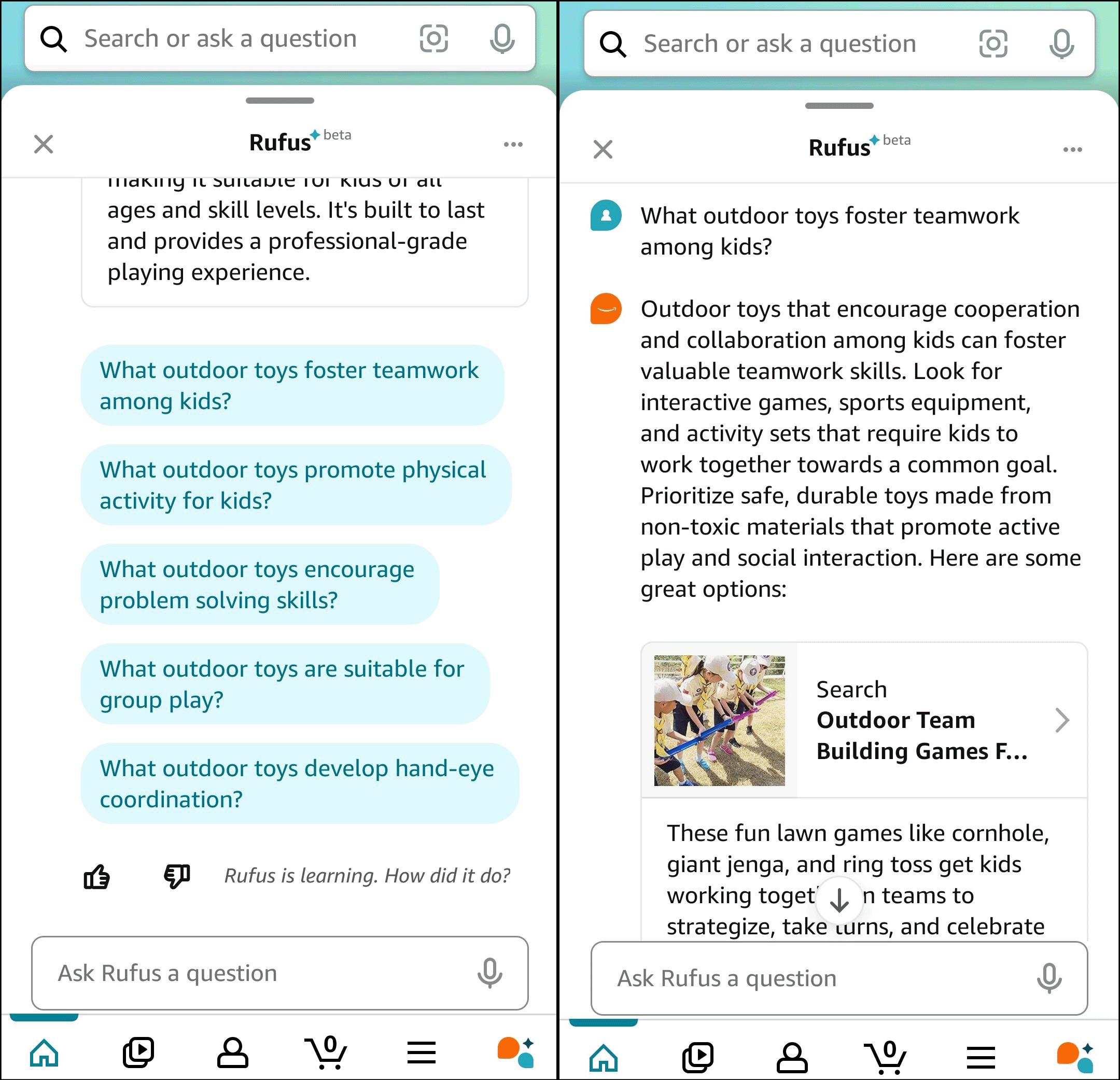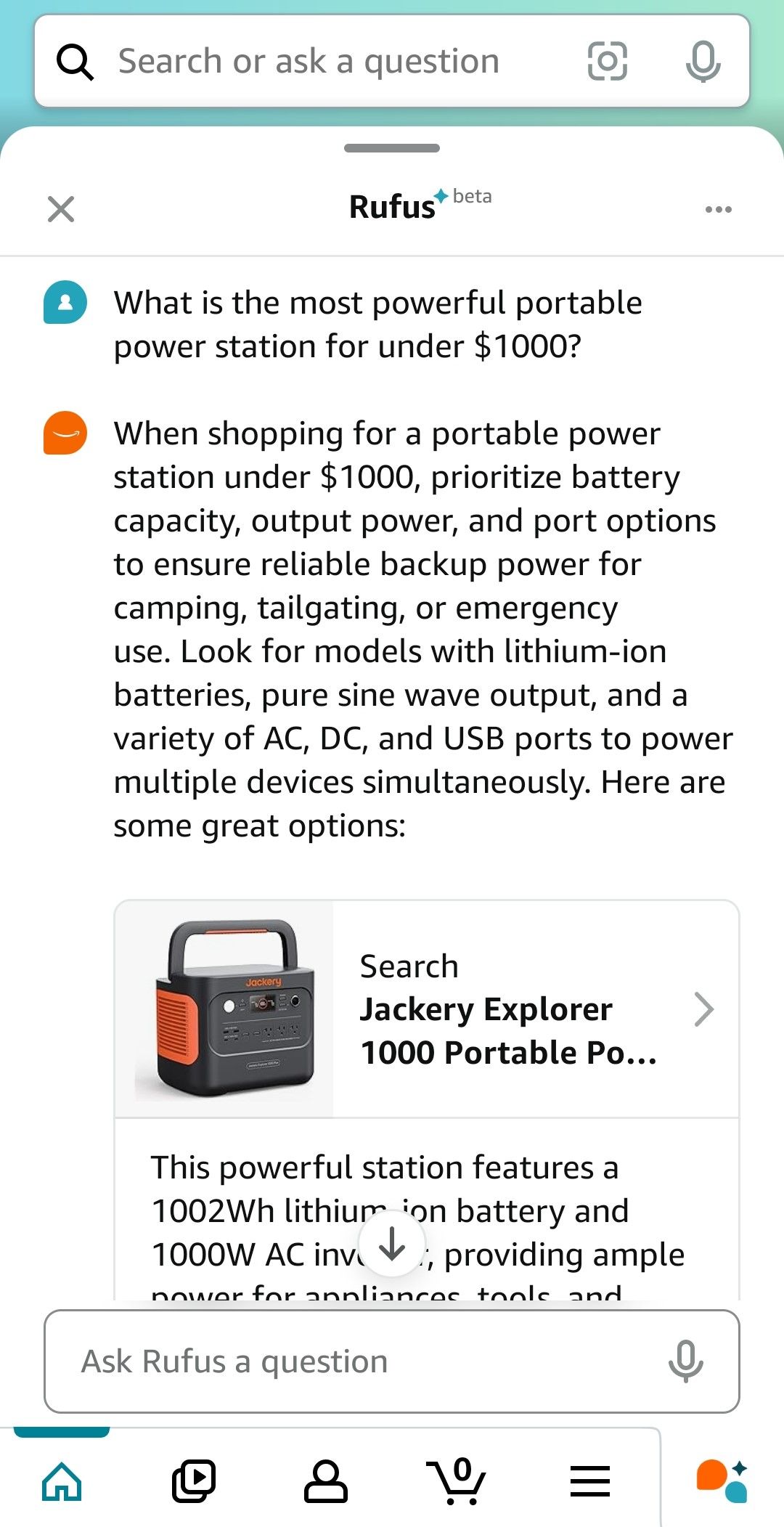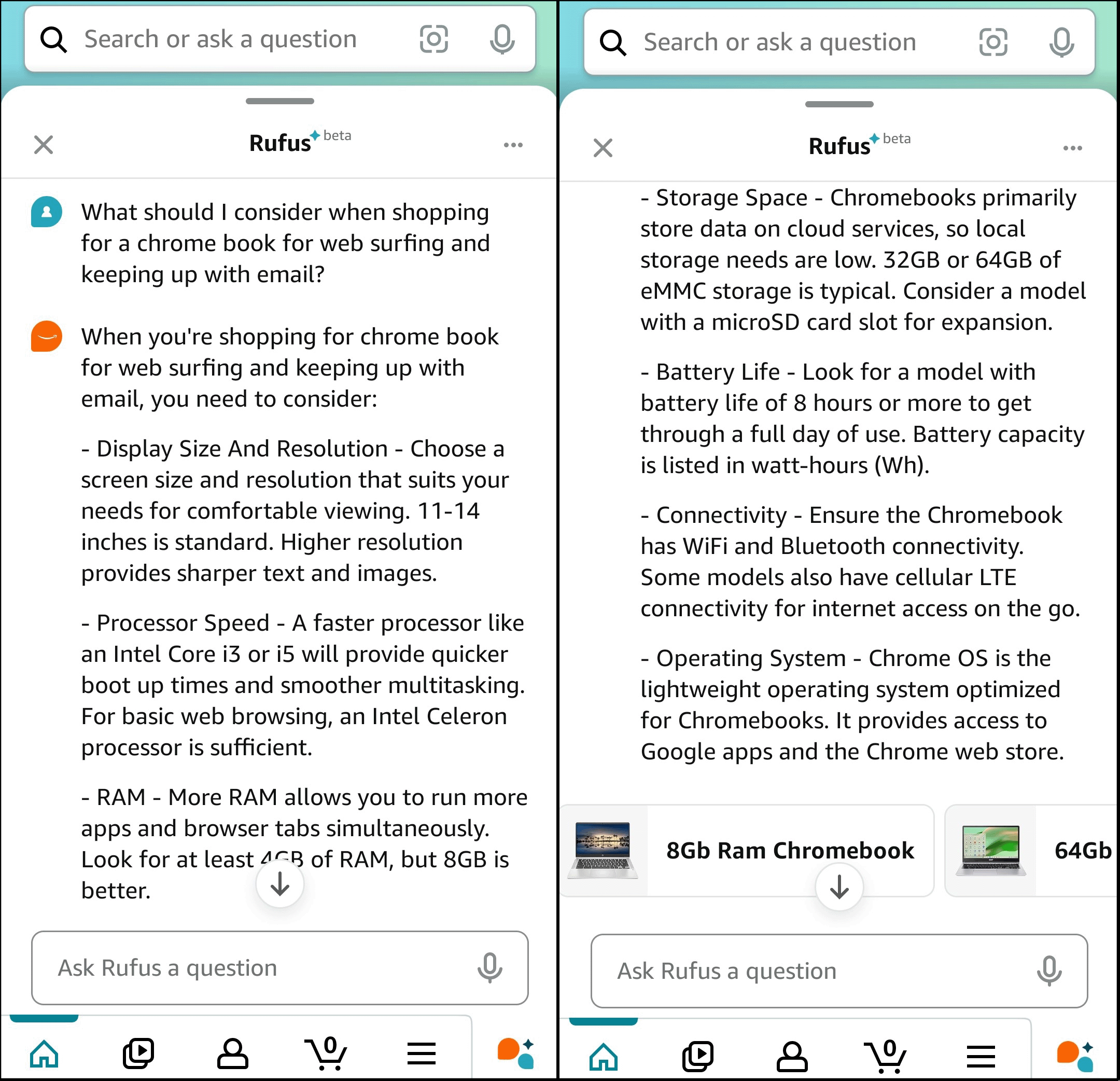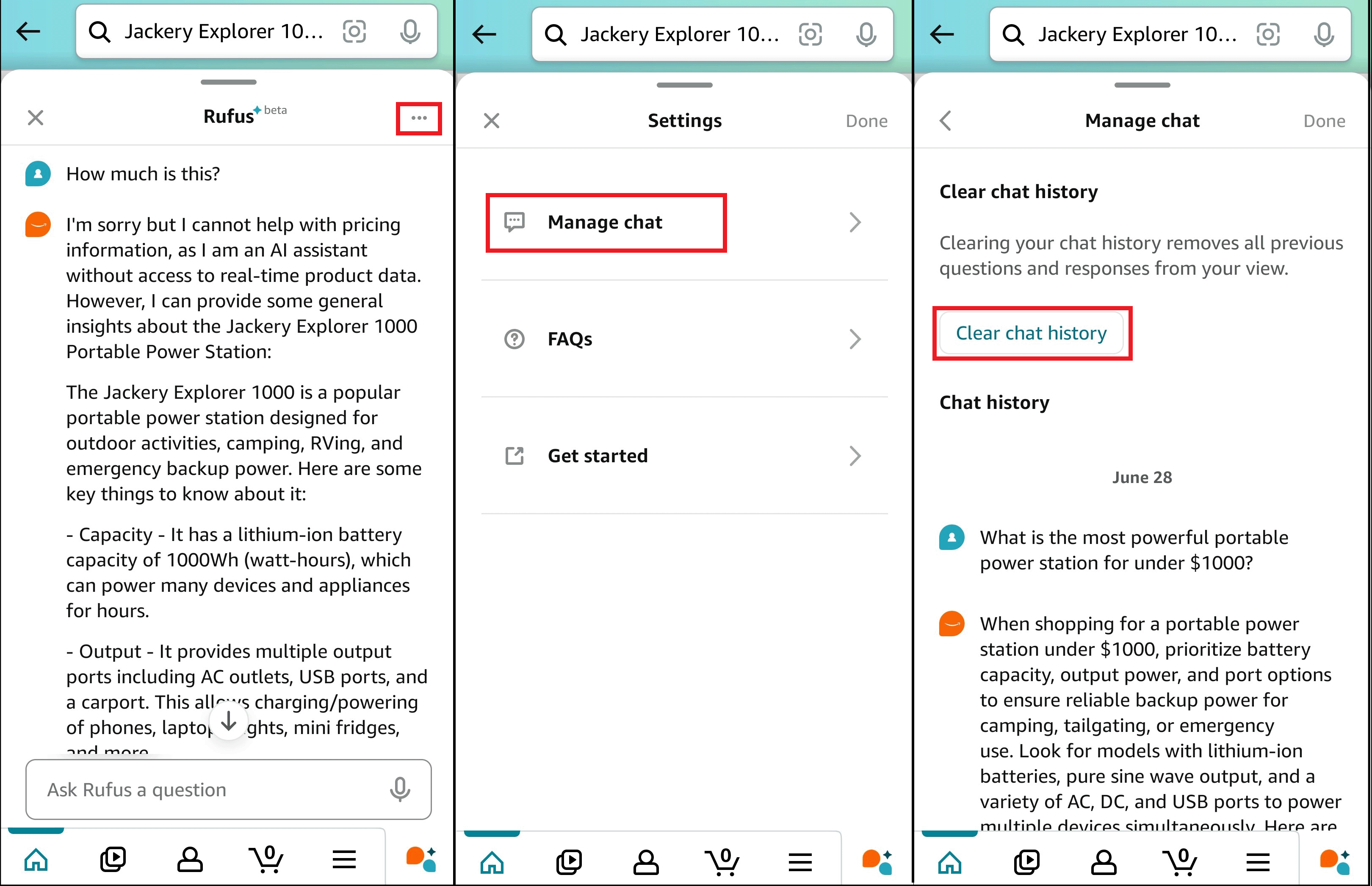Key Takeaways
- Rufus, the AI shopping assistant, is available on Android and iPhone mobile Amazon Shopping apps and provides product search suggestions.
- Rufus can help with specific product searches and answer questions about products, but does not currently provide pricing information.
- Rufus’ chat history is deleted after 28 days for data privacy, and it can be helpful for Prime Day shopping by narrowing down product options.
Amazon Prime Day is July 16-17th! I learn all about Rufus as the AI takes me Amazon shopping for toys, a Chromebook, and a fancy power station. If you want to grab the best deals, you’ll want to get familiar with this helpful bot too!
Who Is Rufus?
The original Rufus (1994-2009) was a beloved Welsh Corgi who seems to have morphed into a bit of a legend at Amazon and is credited with starting Amazon’s dog-friendly workplace culture. Released in February, Amazon’s new AI shopping assistant is named in his honor. Rufus, the AI, is trained in Amazon’s product catalog, customer reviews, and product Q & As.
Where Is Rufus?
When preparing to write this article, I opened the Amazon website on my second monitor and was surprised that Rufus wasn’t there. I shrugged, opened up my iPad, and settled on the couch with my little dogs. OG Rufus would be proud! To my surprise, Rufus wasn’t on my iPad, either. It turns out Rufus is still only available on Android and iPhone mobile Amazon Shopping apps, and only in the U.S.
Rufus Searches for General Product Ideas
I’ve written hundreds of prompts to train Chatbots. I’ve learned that specific prompts are the best way to get a nuanced response with the information you want. My first prompt to test out Rufus was, “What are some fun outdoor toys for kids under $500 that will be on sale for Prime Day?” Rufus responded by giving me lots of information about Prime Day. There was no information about toys.
Perhaps that prompt was too complex. This time I entered, “What are some fun outdoor toys for kids under $500?” This time, I did get a list of products including a little playhouse and a sandbox. I suppose I could have stopped there, but I really am on the lookout for some new backyard additions. However, these suggestions were for kids much younger than my boys (8, 11, and 14). Rufus did a good job with this prompt. The error was on my part for not specifying their ages.
My 3rd prompt was, “What are some fun outdoor toys for older kids under $500?” Rufus nailed it. Out of the five products Rufus suggested, we already own two of them and have long been in the market for the 3rd suggestion. Rufus’ suggestions are exactly the type of product I was looking for.
Follow-up Questions
After the list of ideal products, Rufus also offered a list of suggestions for follow-up questions. Again, some of the questions were more suited to younger kids. However, I clicked on “What outdoor toys foster teamwork among kids”? While I’m always hesitant to get toys with lots of pieces, I thought the suggestions of Cornhole and Giant Jenga were good. I should note that all of Rufus’ “product suggestions” are actually product searches for a specific product. Clicking the suggestion doesn’t take you to the product shown, but to an Amazon search for that product, usually listed first in the resulting search.
Specific Product Searches
Next, I wanted Rufus to help me make a power station wishlist for Prime Day. I’ve learned that solar panels are cheap and plentiful. I have several. However, finding a portable power station that can collect and store a useful amount of solar power has been a challenge!
My next prompt was “What is the most powerful portable power station for under $1000?” Rufus came through again. It made good suggestions about what to look for when shopping for power stations and suggested five products. Two of them have been on my wish list for some time.
I notice that Rufus’ product suggestions do not include prices. This is because they are product searches for a specific product instead of the product information page. You have to leave Rufus by clicking on one of the product search suggestions to see pricing information.
Next on my shopping list were Chromebooks. I do much of my writing on my home office desktop, and I also follow my children around with a cheap Chromebook. I love Chromebooks because they run quickly without all the baggage of Windows, and they’re cheap enough that it’s not a crisis if they get lost or damaged. Since I work mostly from the cloud, I don’t need the power of a PC. My most recent 2yr old Chromebook was mysteriously drenched by a pool toy in our backyard last week —we do not have a pool. So, I need to replace it, likely with another no-frills option. I know what brands I like, but I don’t keep up with what product specs are current. I’m hoping Rufus can update me.
I prompted Rufus with “What should I consider when shopping for a Chromebook for web surfing and keeping up with email?” Rufus suggested an Intel Celeron processor or better, at least 4GB of RAM, 32GB or 64GB of eMMC storage, 8hr battery life, Wi-Fi and Bluetooth, and gave a few product search suggestions. These numbers all checked out well for basic web surfing and word processing. Since there’s still over a month before my kids go back to school, I went with this basic refurbished Samsung Chromebook that will sync with my Samsung phone.
Data Privacy and Security
Customer interactions with Rufus are used for 28 days for additional testing and training to improve Rufus. After 28 days, the conversations are deleted and inaccessible by Amazon or the customer. An alternative for customers who want more data privacy is to delete their chat history immediately after use to prevent the chat from being reviewed by Amazon. You can do this by tapping the three dots in the right-hand corner of Rufus and accessing the “Manage Chats” options.
Other Rufus Notes
I picked up a few things about Rufus in its current state as I was using it that will likely make it easier for you to deal with it’s idiosyncrasies.
For one thing, it’s a little buggy. I sometimes had to enter prompts a second time to get Rufus to respond, but I never had to reload the app.
Rufus is advertised as an Amazon search assistant, and I found that to be accurate. It answers questions with product search suggestions instead of products, and will not give pricing information. When I asked Rufus for a price while looking at the product price on the product information screen, it still said it did not have access to real-time product data.
Rufus access from a product information page will suggest questions you can ask about that product, not including the price. At this point, I think we’re all familiar enough with Amazon’s product pages to scroll to the Q & A’s and product specifications quicker than we can access Rufus. However, as Rufus develops, this ability may progress into something more useful.
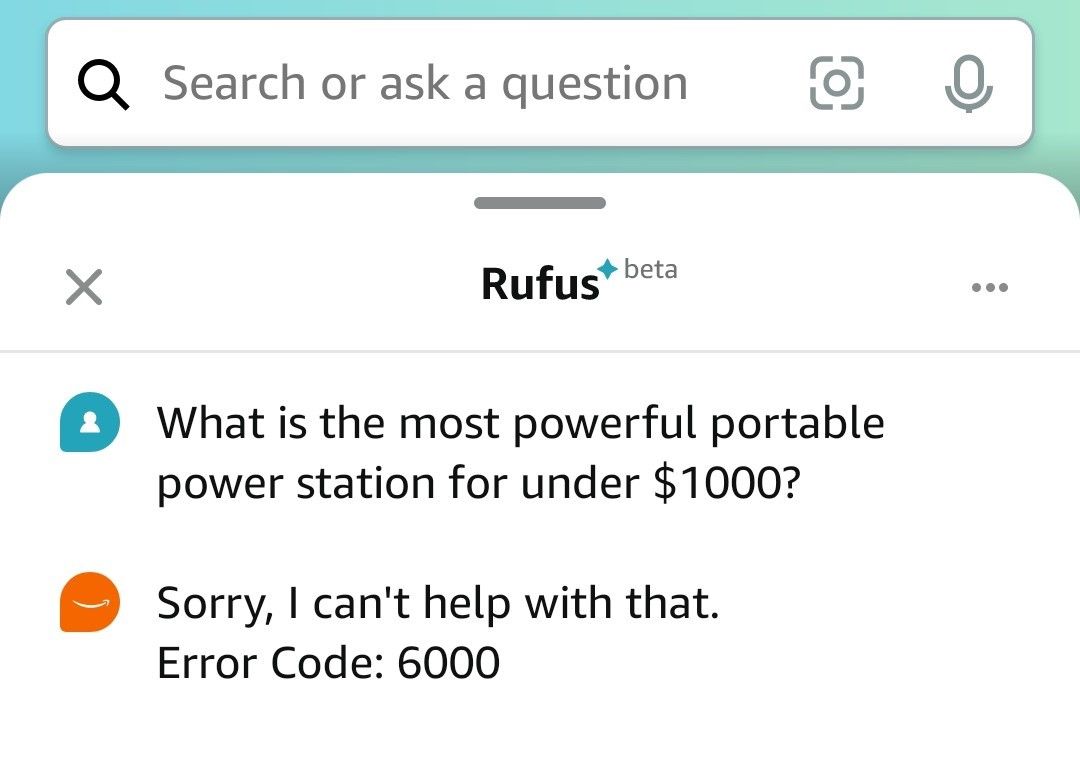 Prime Day Ready?
Prime Day Ready?
My first instinct was to judge Rufus harshly as unhelpful for Prime Day because it can not give prices. Prime Day is all about the prices! However, I got a lot of useful information from Rufus. In fact, I often jump for the Prime Day deals and end up returning a product that didn’t meet my needs. Rufus could help me do a little more research before and during Prime Day to narrow down a wide selection of products and features. Rufus has proven helpful by making good suggestions and answering simple questions. It doesn’t handle prices, and you can’t use Rufus to buy things. However, I’d rather work with an AI that does one thing well than multiple things poorly. I’m optimistic that this rather painfully slow Rufus rollout means his quality will remain high. If you’re in the US and on a mobile, give Rufus a try!

